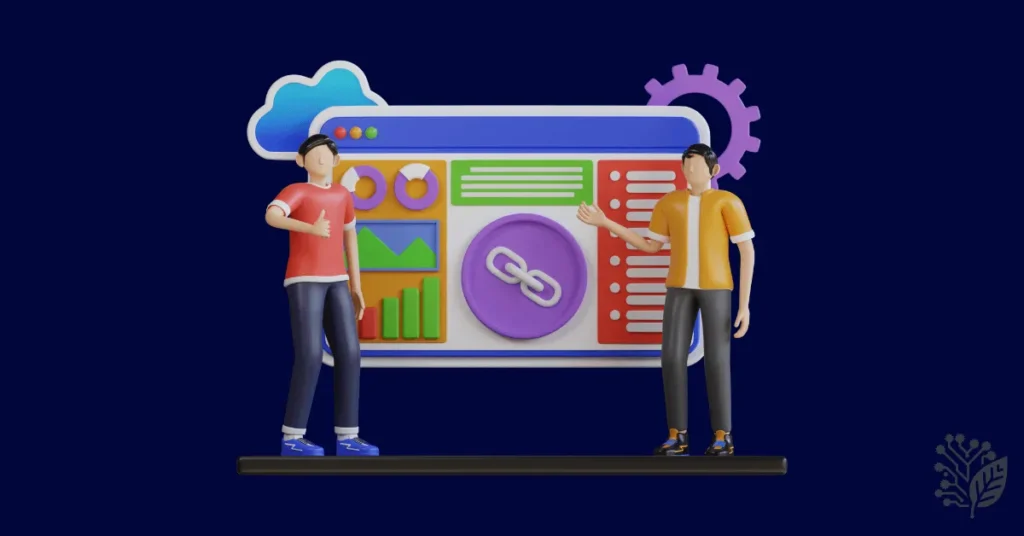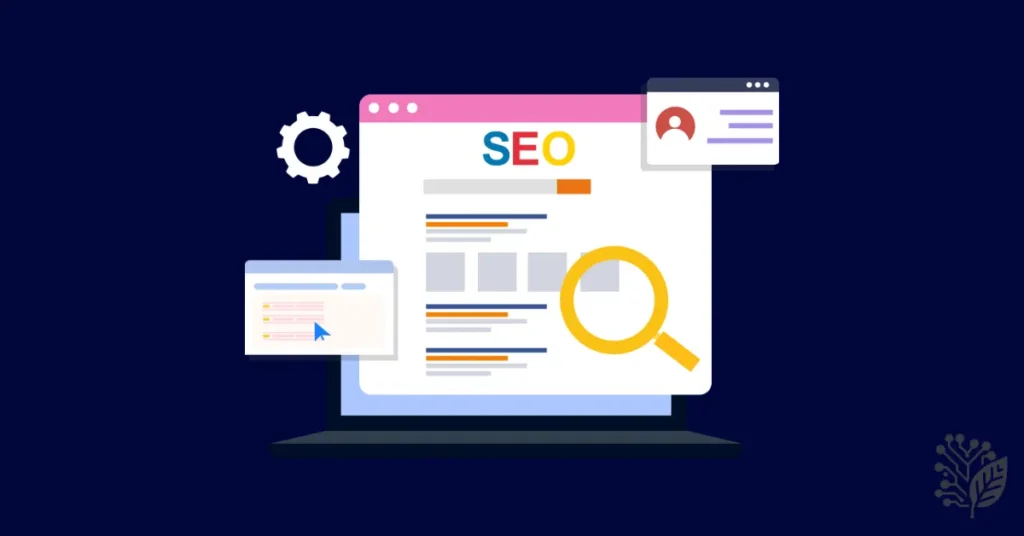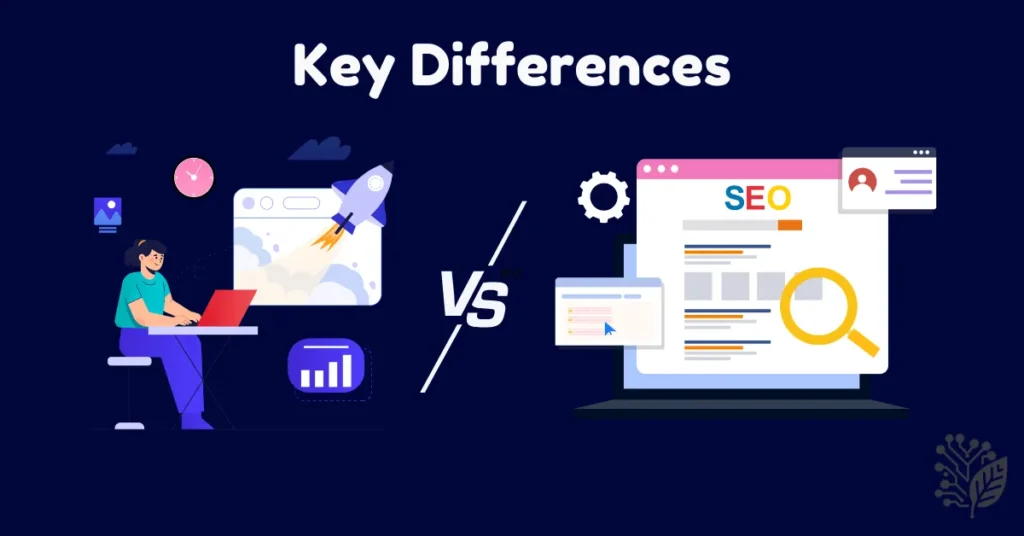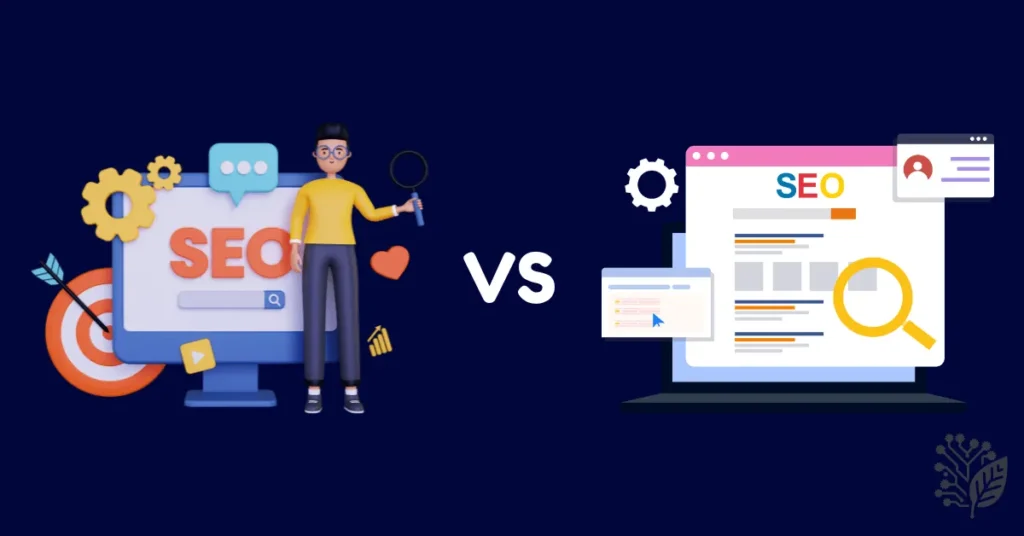If you’re serious about ranking higher on Google, understanding the difference between Technical SEO vs On Page SEO isn’t optional — it’s essential. Without both working together, your website will struggle to climb the search results, no matter how amazing your content may be.
Google’s algorithm isn’t just about keywords anymore. It rewards websites that are fast, secure, mobile-friendly, and rich with high-quality, optimized content. That’s why mastering both Technical SEO and On Page SEO is the secret to long-term success.
What is Technical SEO?

Technical SEO acts as the cornerstone of your website’s visibility, ensuring that search engines such as Google can effortlessly crawl, index, and interpret your pages.
In simple terms, Technical SEO helps you remove all roadblocks that might stop search engines from finding or displaying your content. Think of it as tuning up a car — if the engine doesn’t run smoothly, it doesn’t matter how shiny the paint job is.
Why Technical SEO Matters
A strong Technical SEO setup improves:
- Crawlability: Helps search engines access and navigate your site structure.
- Indexation: Ensures your valuable pages are included in Google’s index.
- Site Health: Reduces errors, broken links, and slow load times that could harm rankings.
Real-World Technical SEO Factors
Here are the key components of Technical SEO:
- Website Speed and Performance: Fast-loading sites offer better user experience and lower bounce rates. Here’s a detailed guide to help you run an advanced Technical SEO audit.
- Mobile-Friendliness: With Google’s mobile-first indexing, your site needs to function seamlessly on smartphones.
- Secure HTTPS Connection: Security is a ranking factor. Make sure your site uses HTTPS.
- Robots.txt and XML Sitemap: These files help Googlebot crawl your site efficiently.
- Canonical Tags and Structured Data: Avoid duplicate content issues and improve the way your site looks in search results by using schema markup. (Explore this schema markup guide).
What is On Page SEO?

Now let’s talk about the other half of the equation — On Page SEO. While Technical SEO focuses on making your site accessible, On Page SEO is about ensuring your content is relevant and engaging for both users and search engines.
Why On Page SEO Matters
On Page SEO tells Google what your page is about. This optimization helps match your content with search intent — so the right people find your website at the right time.
Real-World On Page SEO Factors
Here’s where you focus on perfecting your content:
- Optimized Title Tags and Meta Descriptions: These are the first impression your page makes on Google and users.
- Keyword Placement and Density: Naturally placing your main and related keywords.
- Proper Use of Heading Tags: Logical and clear structure using H1, H2, and H3.
- Internal Linking Strategy: Connect relevant posts like how to speed up new website indexing to help search engines and users navigate your site.
- Image Optimization and ALT Text: Optimized images load faster and improve accessibility.
Technical SEO vs On Page SEO: Key Differences

Let’s make it crystal clear. Here’s a quick breakdown:
| Feature | Technical SEO | On Page SEO |
|---|---|---|
| Purpose | Improves site accessibility for crawlers | Improves content relevance for users |
| Focus | Site structure, speed, security | Keywords, headings, internal links |
| Tools | Google Search Console, Screaming Frog, GTmetrix | Yoast, Rank Math, Surfer SEO |
| Common Issues | Crawl errors, speed issues, HTTPS problems | Poor meta tags, keyword stuffing |
Key Takeaway: You can’t choose one over the other. Both are essential for a strong, search-engine-friendly website.
How Technical SEO and On Page SEO Complement Each Other
Both On Page SEO and Technical SEO play complementary roles in boosting your website’s performance, enhancing user experience, and improving search visibility. While On Page SEO focuses on refining content, keywords, and HTML elements to match search intent, Technical SEO ensures the underlying website architecture is optimized to support and maximize these efforts for better crawlability and indexing.
For example: A blog post with great keyword placement and clear headings won’t rank well if your website loads slowly or fails to pass Core Web Vitals. Likewise, a lightning-fast website won’t rank without useful, relevant content. Both pieces must align perfectly, just like matching puzzle pieces.
Common Mistakes in Technical SEO and On Page SEO
Common Technical SEO Mistakes
- Slow page loading times.
- Broken links and crawl errors.
- Poor mobile usability.
- Missing HTTPS encryption.
- Skipping structured data or improper canonical tags. Here’s a checklist to avoid them.
Common On Page SEO Mistakes
- Keyword stuffing or poor keyword usage.
- Weak meta titles and descriptions.
- Lack of internal links to helpful content.
- Poor content formatting with no clear headings.
- Ignoring image optimization and ALT text.
5-Step Action Plan for Beginners
Want to level up your site? Here’s a simple, actionable plan:
- Test and Fix Website Speed: Use tools like Google PageSpeed Insights.
- Scan for Crawl Errors: Google Search Console can highlight issues.
- Craft Optimized Titles and Meta Descriptions: Prioritize clear wording and relevant keywords.
- Improve Internal Linking: Link to helpful resources like this benefits of technical SEO guide.
- Refresh and Optimize Old Content: Keep your information up-to-date.
Which SEO Should You Prioritize First?
If your site is live but not showing up on Google at all, focus on Technical SEO. If your site is indexed but ranking poorly, shift focus to On Page SEO.
However, the smartest strategy is to balance both from day one. Fixing one and ignoring the other can limit your growth.
Final Thoughts
To wrap it up:
- Technical SEO guarantees that search engines can crawl, index, and rank your site effectively.
- On Page SEO ensures your content speaks to both users and search engines clearly.
If you want to dominate search results, you can’t afford to overlook either. Master both, and your website will be fully prepared to win the ranking race.
For a deeper dive into technical strategies, check out this in-depth Technical SEO guide.
FAQs
Do I need both Technical and On Page SEO for my site to rank?
Absolutely. Technical SEO ensures your site is accessible to search engines, while On Page SEO ensures your content is relevant and optimized for users.
Can I handle Technical SEO without coding knowledge?
Yes! While some advanced fixes need coding, most tasks like improving speed, creating XML sitemaps, and checking for errors can be handled with beginner-friendly tools.
How often should I check Technical and On Page SEO issues?
For best results, review Technical SEO at least once a quarter, and update On Page SEO each time you publish new content or refresh existing pages.







